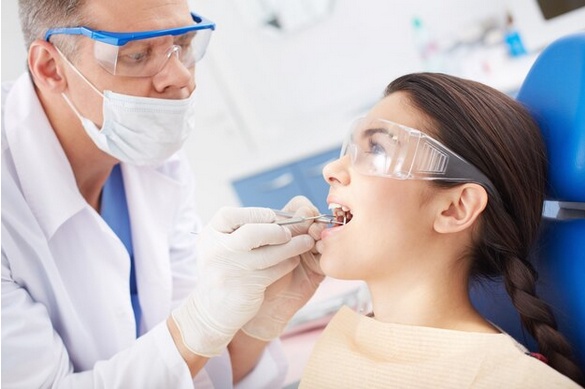Dental emergencies can strike at any moment, causing intense pain, discomfort, and anxiety. When faced with a dental crisis, every second becomes crucial in seeking the right emergency dental care. This comprehensive guide aims to provide valuable insights into various emergency dental situations, their solutions, and the importance of swift action in preserving oral health.
Common Dental Emergencies and Immediate Actions
1. Severe Toothache:
A sudden and severe toothache can be debilitating. Immediate actions include rinsing the mouth with warm water, flossing to remove any debris, and taking over-the-counter pain relievers if necessary. Contacting an emergency dentist promptly is crucial to identify and address the underlying cause of the pain.
2. Knocked-Out Tooth:
A knocked-out tooth requires swift action for the best chance of successful re-implantation. Hold the tooth by the crown (not the root), rinse it gently without removing any attached tissue, and attempt to reinsert it into the socket. If this isn't possible, place the tooth in a container with milk or saliva and seek emergency dental care immediately.
3. Cracked or Fractured Tooth:
A cracked or fractured tooth can be a result of trauma or biting on hard objects. Rinse the mouth with warm water, use a cold compress to reduce swelling, and take pain relievers if needed. Contacting an emergency dentist is essential for a proper assessment and suitable treatment.
4. Lost Filling or Crown:
A lost filling or crown can expose the underlying tooth structure, causing sensitivity and discomfort. Using dental cement, available at pharmacies, to temporarily cover the exposed area can provide relief until professional care is obtained. Seeking prompt attention helps prevent further damage and infection.
5. Abscess or Swelling:
Dental abscesses can lead to severe pain, swelling, and fever. Rinsing the mouth with warm saltwater and using a cold compress can help alleviate symptoms temporarily. Immediate contact with an emergency dentist is crucial to address the infection and prevent its spread.
The Importance of Prompt Emergency Dental Care
1. Pain Management:
Swift action in emergency dental situations is vital for effective pain management. Dental emergencies often come with intense pain, and delaying treatment can exacerbate the discomfort. Emergency dentists are equipped to provide immediate relief, whether through medication, temporary measures, or definitive treatments.
2. Preventing Further Damage:
In many dental emergencies, prompt care is essential to prevent further damage. Whether it's a knocked-out tooth, a cracked tooth, or a lost filling, immediate attention can significantly impact the success of restoration and reduce the risk of complications.
3. Addressing Infections:
Dental infections, such as abscesses, can spread rapidly and have systemic effects if left untreated. Emergency dental care ensures timely intervention with antibiotics, drainage, or other necessary procedures to address the infection and prevent its escalation.
4. Preserving Teeth:
For situations involving knocked-out or fractured teeth, time is of the essence in preserving the tooth's viability. The quicker the tooth is re-implanted or treated, the higher the likelihood of saving it. Emergency dental care maximizes the chances of preserving natural teeth in critical situations.
5. Minimizing Discomfort and Anxiety:
Dental emergencies often cause significant discomfort and anxiety. Seeking prompt care not only addresses the physical aspects of the emergency but also helps in alleviating emotional distress. Knowing that professional assistance is readily available can provide reassurance and comfort during a challenging time.
Emergency Dental Care Solutions
1. Emergency Dentist Contact Information:
Being prepared for a dental emergency starts with having the contact information of an emergency dentist readily available. Knowing who to call and where to go in case of an emergency can save valuable time and ensure prompt care.
2. Temporary Home Remedies:
While awaiting professional care, there are several temporary home remedies that can provide relief. Over-the-counter pain relievers, cold compresses, and avoiding certain foods or activities can help manage symptoms until a dentist can assess and treat the issue.
3. Dental First Aid Kit:
Having a dental first aid kit at home can be beneficial in handling minor dental emergencies. This kit may include items such as dental cement, over-the-counter pain relievers, sterile gauze, and a small container with a lid for storing a knocked-out tooth in milk or saliva.
4. Teleconsultation Options:
In some cases, teleconsultation with a dentist may be possible to assess the situation and provide initial guidance. This can be particularly helpful in determining the urgency of the situation and whether immediate in-person care is required.
Conclusion
In times of dental emergencies, every second counts, and knowing how to respond can make a significant difference in the outcome. Immediate action, from contacting an emergency dentist to implementing temporary home remedies, is crucial in managing pain, preventing further damage, and addressing infections.
The importance of prompt emergency dental care cannot be overstated. Beyond the immediate relief of pain and discomfort, seeking timely professional care helps preserve teeth, prevent complications, and minimize long-term consequences. Dental emergencies can be distressing, but with the right knowledge and preparedness, individuals can navigate these situations with confidence, ensuring the best possible outcome for their oral health.
In conclusion, being proactive in understanding common dental emergencies, having access to emergency dental care, and knowing how to respond swiftly can turn a potentially dire situation into a manageable one. Whether it's a knocked-out tooth, severe toothache, or any other dental crisis, being prepared and taking prompt action is the key to preserving oral health and well-being.


No comments yet